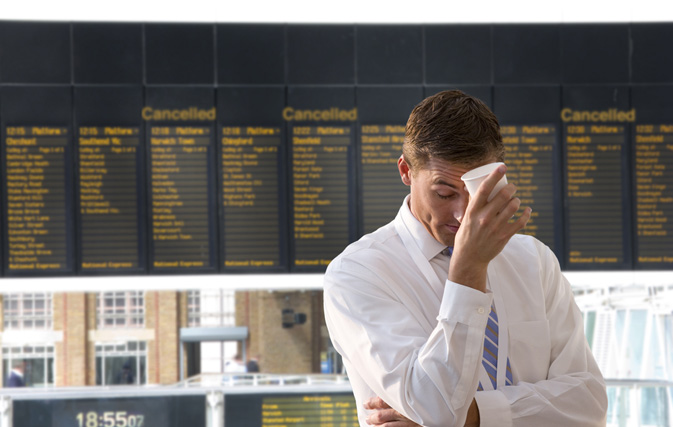SAN JOSE, CA — Regardless of age, gender or region of the world, travellers say their biggest pet peeve when flying is the person sitting right behind them kicking their seat. That’s one of the many findings of a new international survey on the global travel experience.
The new study indicates that today’s travellers are highly sensitized to the need for careful preparation. They’re doing more research on destinations, seeking better travel deals, and purchasing travel insurance to protect against travel disruptions, emergency medical needs, and other global risks. Travellers are also looking to benefit from loyalty and rewards programs, as well as special services that make travel easier and more manageable.
The research was conducted by the Chief Marketing Officer (CMO) Council’s GeoBranding Center in partnership with AIG Travel, a worldwide leader in travel insurance and global assistance services. “The Adept Traveler: How to Care Less about Travel Stress” is based on responses from more than 2,100 American, European and other global travellers via an online survey fielded this summer by the CMO Council and Travelzoo.
Western Europe remains the favourite destination of travellers around the world in 2016. Some 28.7% of all respondents identified Western Europe as the most desirable place to visit. A third of North Americans said Western Europe is their favorite destination, more than the 29% who identified the U.S. as their favourite. By comparison, a third of Western Europeans said their home region was their favourite destination, compared to only 11.4% who chose the U.S. The top four most popular destinations in order were Western Europe, the U.S., Asia-Pacific and the Caribbean.
Travel Stress and Strain
The study explores the top causes of travel stress and what travellers are doing to address these issues. Chief among their biggest frustrations are flight delays and cancellations (66.5%), researching and finding deals (38%), sickness or injury during a trip (37.2%), crowds and congestion at travel points (36.1%), airport security (28.2%) and luggage weight and size problems (27.1%).
Travellers said that when on an airplane, their top pet peeves were first and foremost people behind them who constantly kicked their seat (56.9%), followed by people who recline their seats too far (33.6%), loud people (32.2%), crying babies (25.5%), and passengers who take more than their share of overhead bin space (24.5%).
Asked whether and what kind of fellow traveller they found most difficult, slightly less than half (49.7%) said they had no problems travelling with anyone. Some (24.6%) identified strangers as the people they were likely to have the most problems, followed by children (17.8%), a boss (16.2%) and extended family (14.2%).
The worst situations that travellers said they had experienced first-hand were trip or flight cancellations, illness, theft of a wallet or other possession, and lost luggage that was never found.
Today’s Prepared Traveller
The importance of research and planning to improve the travel experience was a major recurring theme among travellers. Advance trip planning and research via a trusted online source was by far (50.2%) viewed as the best way to relieve travel stress and anxiety, followed by the purchase of travel insurance (27.1%), application for rapid border and security clearance status (20.1%), preparation help from experts (18.8%), and premium lounge membership (14.6%).
“Having insurance to protect themselves against travel risks—from unexpected medical emergencies to theft, lost luggage or trip cancellations—is recognized by many travellers as critical in preparing for a stress-free journey,” said Jeff Rutledge, CEO of AIG Travel. “There will always be risks associated with travel, and purchasing the right type of travel insurance should be top-of-mind for anyone planning a trip.”
Respondents identified their most valued and trusted sources of travel tips and information as travel web sites (46.7%), travel review sites (41.2%), travel guide books (37.3%), and friends and family who travel frequently (26.9%).
In addition, survey participants said that destinations would most help improve the travel experience by ensuring that tourism content was accurate and up-to-date (42.5%), followed by better controlling crime and panhandling (38.9%), verifying that travel deals were real (38.5%), and providing recourse in case of emergencies or problem situations (33.5%).
Nearly seven in 10 travellers said they would find value in VIP travel programs that provide special benefits and privileges, although most said the value of such programs depends on the specific benefits provided.
To download the report, go to cmocouncil.org/adept-traveler-report.

